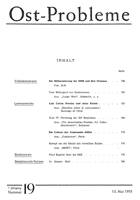

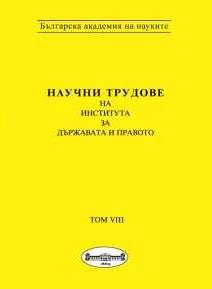
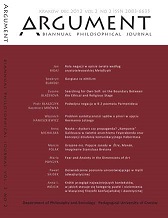
Keywords: Hermann Lotze; Immanuel Kant; synthetic a priori judgements; epistemology; theory of knowledge
The present article compares Immanuel Kant's and Hermann Lotze's concepts of synthetic judgements. Lotze's aim is a renewing of Kant's solutions, which da chieves thanks to the introduction of the disctinction between the analytic (identical) content and the synthetic form of these judgements, recognised by Kant as synthetic. This distinction makes it possible to lay down the concept of the intentional sense which has an influence over Gottlob Frege and Edmund Husserl.
More...
A large number of motives of folk tales and poems, and especially of fairy-tales, is common to many peoples distant from each other both in time and space. In most of the cases they have a general human character, but they can also deal with fantastic images and ideas which may have a common source, or they may also appeare in an identical form, without any influence from any other side. This is proved by a large number of common themes in Arabian Nights and in the Collection of folk tales and poems of Vuk St. Karadžić. At the beginning of this study, in its introduction, a short survey is given of the history of studies of Arabian Nights in Europe, pointing, at the same time, to the relatively small interest for those tales in the Arab world. With regard to Yugoslavia, although a good number of translations of certain tales from Arabian Nights exist, and in spite of even a complete translation of the whole book, to be true not from Arabic original, but from the Russian translation of Sale, so far nobody occupied himself with the problems related to Arabian Nights. In that respect the present study is an innovation. After a short introduction, the full list of the titles of all the tales from Arabian Nights is given from the Bulaq edition which was the only source for this work. The chapter which deals with some peculiarities of Arabian Nights explains in a few words its origin and its development through centuries (from VIII to XVI century) up to the moment when it was written in the present form. Different phases through which the collection has passed have been pointed out, as well as the three main layers of sources from which it had its origin (Persian, Indian and Arabic). The Arabian Nights stories are specific in that they form one whole connected by the story of Shahrazade, although the collection is made up of different material (novels, animal stories, fables, fairy-tales, legends, short stories, long short-stories and anecdotes) in which even some verses can be found. However, regardless of the popular origins of these stories like of all other falk-tales, their author, namely, being unknown, they differ from the genuine folk-tales by the adoption of certain charasteristics of writtien literature, since along with their oral transmiasion they were also written down whereby they experienced a certain change by additions and revisions made by individual writers or scribes in agreement with their own taste and the spirit of their age and partly under the influence of written literature.
More...
Keywords: axiomatic; logical; pragmatic; knowledge; creativity;
We consider the axiomatisation like an activity of formalisation and systematization of a particular theory. Thus, it appears like an ars inveniendi, a crucial stage in the knowledge process. The axiomatisation guarantees the abstraction, the generality, the systematicity and the ehaustivity of this process. In the same way, it permits to clarify a theory and to value the conceptual relevance of it. Conceived like a productive activity, the axiomatisation has many creative virtues.
More...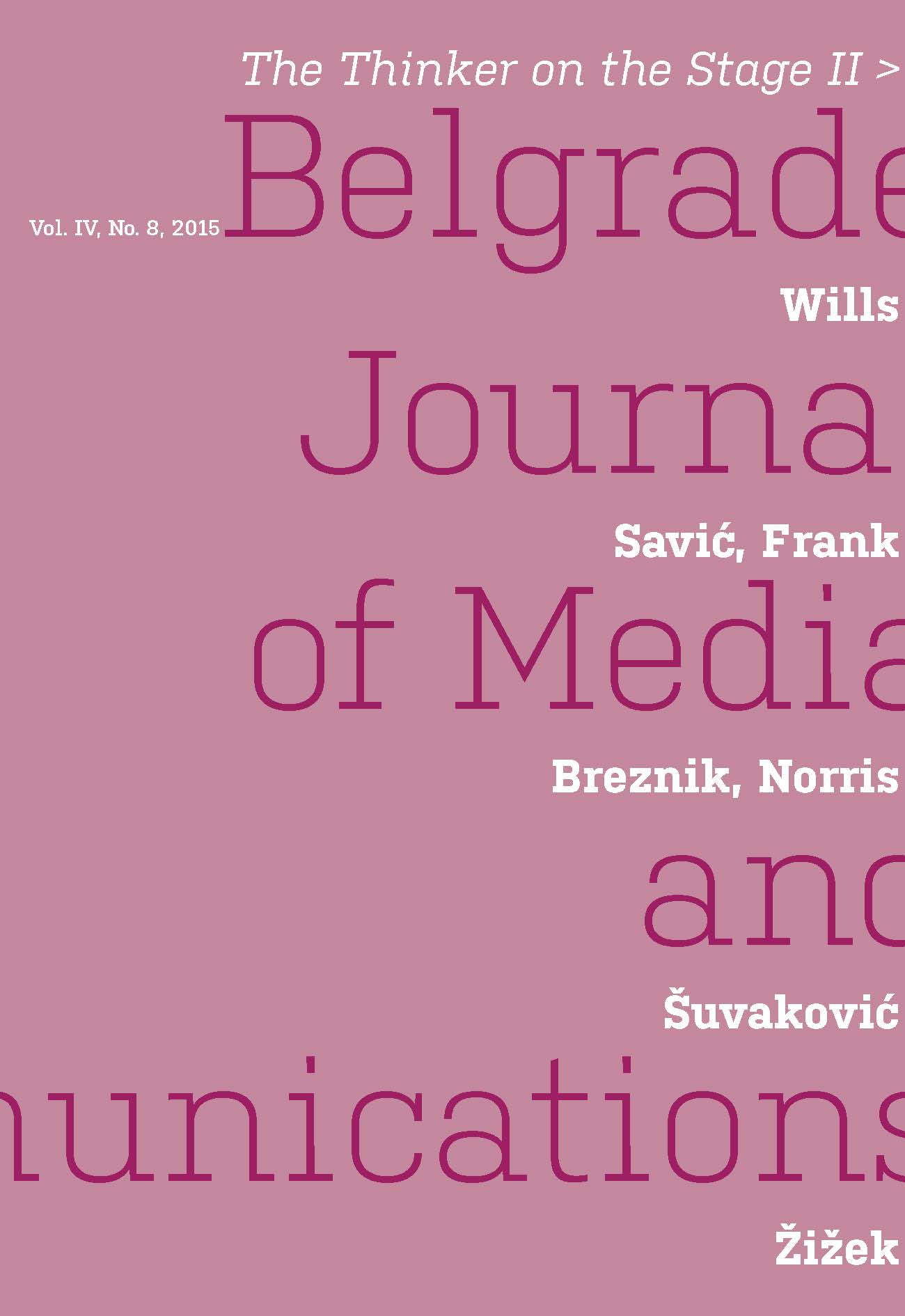
Keywords: Subjectivity; Personhood Self-Consciousness; Substance; Self-knowledge; Individuality; Privacy.
The text has two parts: historical and a systematical. In the first one, main theses on subjectivity are briefly traced throughout the entire history of Western philosophy (from Plato to Heidegger), which is generally determined as ‘self-empowering of subjectivity’. Greater attention is given to early German philosophical Romanticism. In the second part, the structure of subjectivity is sketched. Subjectivity is acomplex notion, the descriptive determinations of which are personhood, individuality and privacy. What makes these to be the instances of subjectivity – is the self-consciousness. In general the text deals with the main question: What is subjectivity, and what is its relationship with self-consciousness and self-knowledge?
More...Keywords: noble testaments; Transylvania; orality; literacy; sixteenth century;
Late medieval and early modern testamentary practice was the result of a gradual development of several legal systems which were made to fit the needs and interests of various social groups, and therefore often contradicted each other. The significance of this process is that from a very early phase, literacy and orality were both present in making wills, but even if the role of literacy increased, it never became exclusive. Oral forms and practices were maintained in the formulation and execution of last wills up to our times. Therefore, testaments can provide a good example for investigating the coexistence and combined use of written and oral communication in a situation which was extreme and inevitable for the individual – the testator, and crucial for the community – the survivors. This is what we shall try to trace first, mainly on the basis of noble wills from sixteenth century Transylvania. However, a great attention will be paid to the different aspects of the writing process of the last wills and testaments.
More...
Keywords: Motivation to lead; Scale validation; leadership self-efficacy
Purpose: This study is a contribution to the validation of the Motivation to Lead (MTL) scale proposed by Chan and Drasgow (2001) in order to measure three types of motivation to be a leader: affective, social-normative and calculative. This research examines the psychometrical properties of the MTL scale in the Estonian context. Methodology: The sample of 517 military and non-military individuals from the Estonian Defence Forces, Estonian Police and students from Tallinn University participated in the study. The original MTL scale was expanded by with the addition of ideological and patriotic dimensions proposed by Amit and colleagues (2007). The factorial structure of the MTL Scale was analysed by using exploratory and confirmatory factor analysis (respectively N = 170 and N = 347). Findings: The results confirmed that both three- and five- component MTL scales are applicable in the Estonian context; the pool of 35 items was reduced into 25 items with good internal reliability. Moreover, the results showed correlations between leadership self-efficacy and MTL components,and differences between leaders’ and non-leaders’ MTL. The results indicate that the MTL scale can be a reliable and useful instrument to measure leadership motivation in the Estonian military context. Originality: This study is the first to adapt the MTL scale to the Estonian context. In addition, it examines the validity of ideological and patriotic MTL as part of the general MTL construct outside of the Israeli samples.
More...
Keywords: sociology of education; latent growth curve; longitudinal bifactor model; relationships with classroom peers; a feeling of social integration; sociometric network; developmental changes
The article discusses the specific character of changes in the evaluation of the sense of social integration in the classroom between third and sixth graders in primary school, and their social, demographic and cognitive determinants, with special consideration given to the position in the sociometric network. The analysis of latent growth curves – based on a scalar longitudinal measurement invariance, a bifactor model of the Perceived Peer Integration Questionnaire (PPI) and three rounds of the nationwide study School conditions of education effectiveness (N = 4349) – indicate that the second stage of learning in primary school is characterised by more negative perceptions of social integration in classroom settings, which cannot be explained either by socio-demographic variables or the relationships taking place within peer networks. This indicates that it might be linked to developmental changes rather than the actual worsening of peer relations.
More...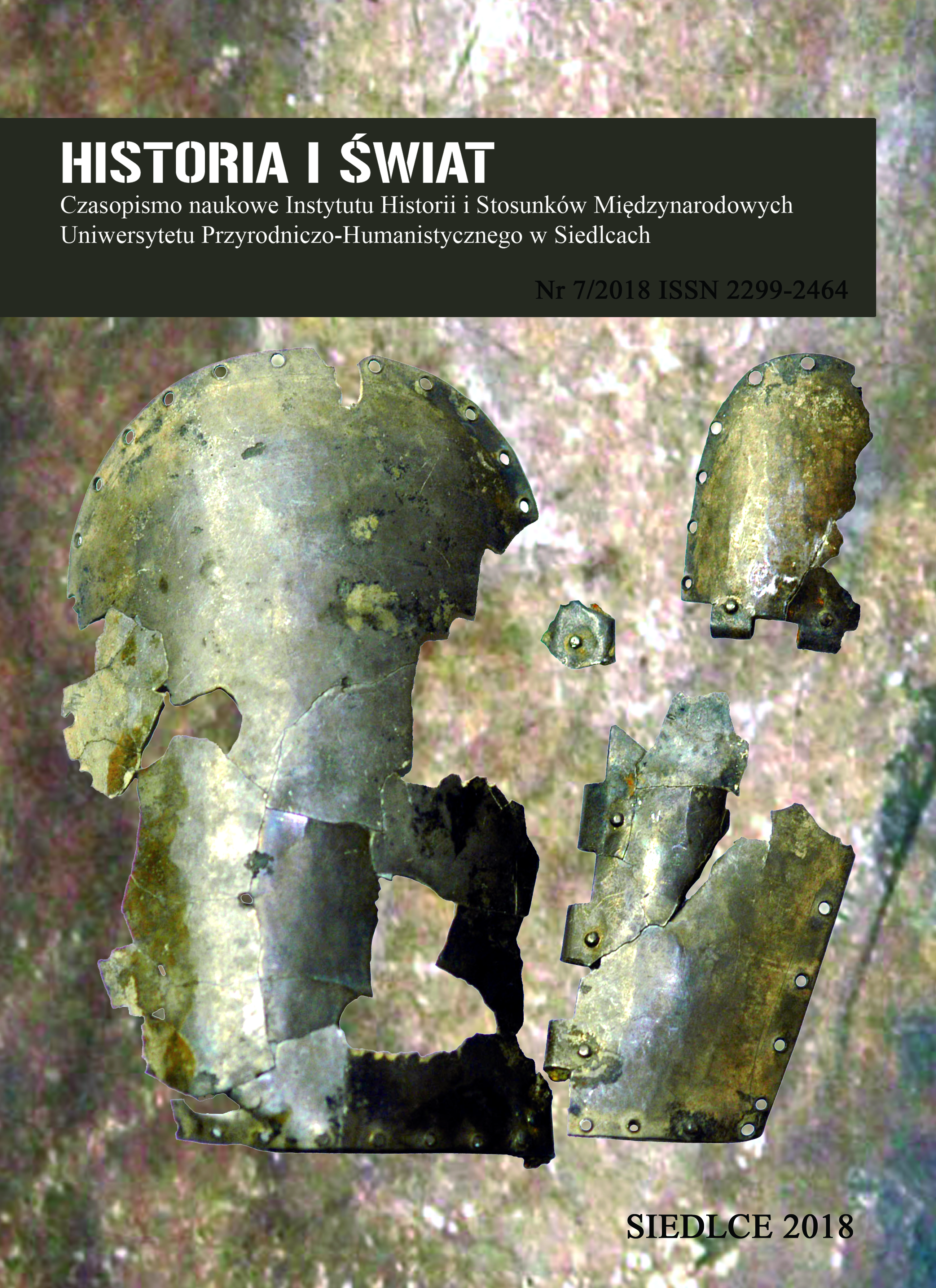
Keywords: Iran; Sasanians; Amida; wars; Šāpur II; Ammianus Marcellinus
In 359, Šāpur II (r. 309-379) led his army against Rome. This campaign became a milestone for the balance of power in Romano-Iranian borderlands. After seventy three Šāpur succeeded in breaking through the defenses and in sacking the city of Amida. According to Ammianus Marcellinus long lasting, heroic defense of Amida saved the Roman cities of Cappadocia from sacking. The author of the article believes that Amida was initial and primary target of Šāpur’s campaign of 359 and the siege was not a result of coincidence of various events, factors and intentions not, as it is suggested by Ammianus Marcellinus.
More...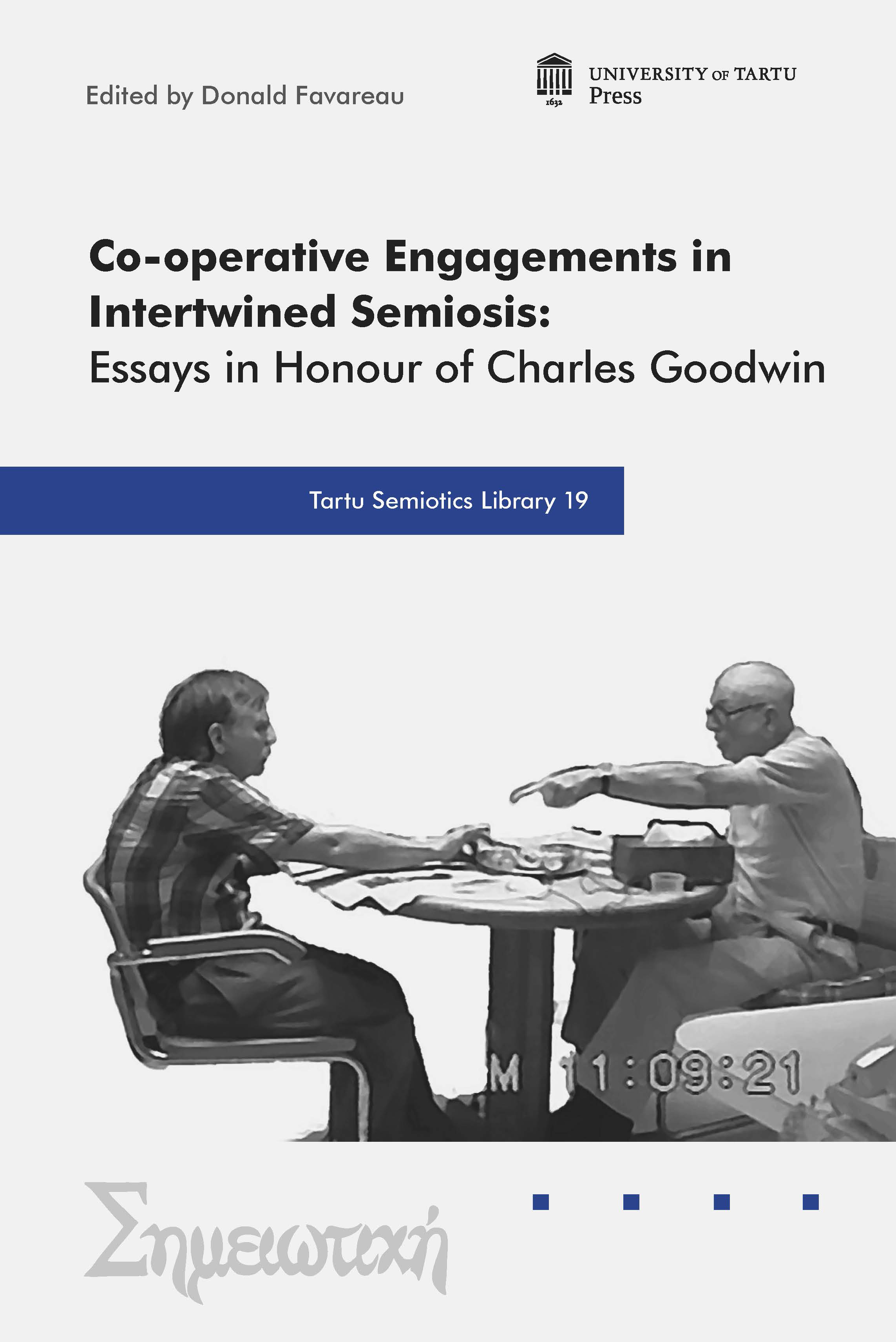
Keywords: Diversity of Signs; Interaction; Saussure and Wittgenstein;
Both Saussure and Wittgenstein argue that we must free ourselves from the pervasive and widely held misconception that language is fundamentally a system of names for objects in the world: that it is a nomenclature. However, these two great pioneers of modern language study follow very different paths to reach this conclusion.
More...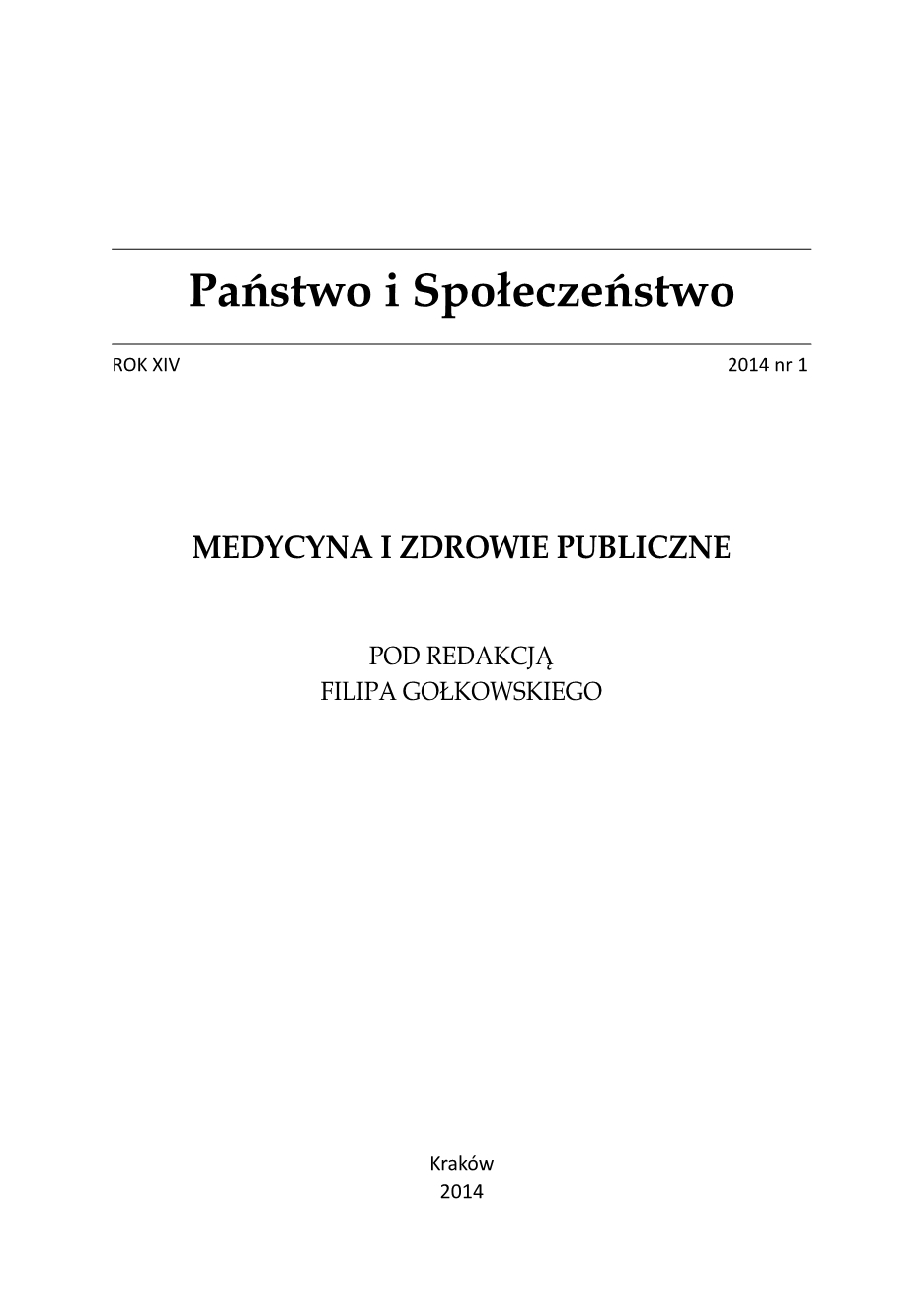
Keywords: non-steroidal anti-inflammatory drugs; pain; aspirin esterase; nursing care;
Non-steroidal anti-inflammatory drugs (NSAIDs) are a diverse group of compounds. These drugs have analgesic, antiinflammatory and antipyretic activity following the inhibition of cyclooxygenase (COX). NSAIDs are classified into four groups, depending on the inhibition of cyclooxygenase activity of COX-1 and COX-2: drugs specifically inhibiting COX-1, the drugs that inhibit non-specific COX-1 and COX-2 and coxibs and second generation. One of the most commonly used NSAID is aspirin. The curative features of aspirin has only the hydrolysed form of this compound. NSAIDs mechanism of action results is not fully known, by multifunctionality. It is known that they abolish the protective effect of prostaglandin for the lining of the gastrointestinal tract, increase the likelihood of bleeding, may lead to bronchoconstriction, cause allergic reactions, cause liver toxicity, neurotoxicity, and skin changes. Consequences of the chronic use of NSAIDs may be dangerous to health and even life of the patient. All members of the therapeutic team should therefore detail to know the broad spectrum of action of these drugs.
More...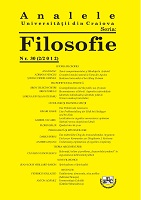
Keywords: Kantianism; cosmopolitanism; public reason; philosophy; right; cosmopolitan right;
Departing from the question concerning Kant’s cosmopolitanism as expressed in his idea of philosophy in a cosmopolitan sense, we inquire about the practical nature of this cosmopolitanism, aiming to elaborate an understanding of the public use of reason, an idea much developed in subsequent, contemporary, cosmopolitan theories having a Kantian inspiration. Relying on contemporary exegesis, on the one hand and on contemporary cosmopolitan theorems, on the other, we develop a distinction between cosmo-political, practical cosmopolitanism as against passive, doctrinal cosmopolitanism, and arrive at a performative idea of the public use of reason, one emphasizing the active element – ‚use‛ – against ‚public reason‛. We conclude that contemporary cosmopolitanism is Kantian insofar it iterates the ongoing Enlightenment dispute it had departed from, namely, the dispute of a common, dialogical construction of reason that stands on the universalist grounds of a shared – cosmopolitan – right, the right to freedom, common to all human, indeed all rational, beings.
More...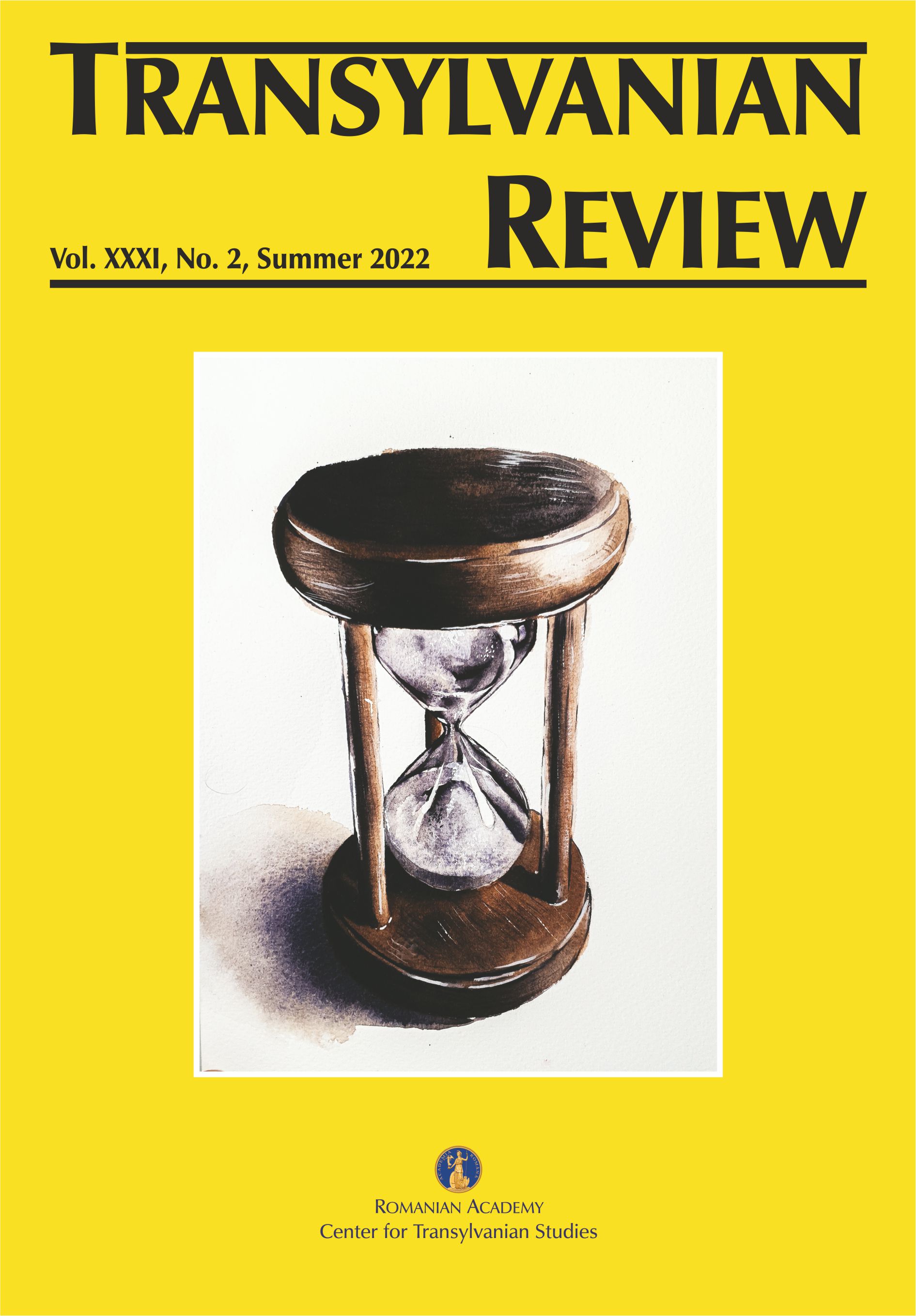
Keywords: the Balkans; East; West; stereotype; imagology; novel;
The region of the Balkans has for centuries inspired a number of travelers, writers, artists and researchers, which is why interest in this part of Europe and its relations towards the rest of it has increased over the years. The increasing number of academic articles and studies shows the importance of thorough and meticulous research of intercultural contacts, as well as of the way these cultural issues are discussed in literary works. The Balkans have been exploited in numerous novels and stories; many imaginary kingdoms have been “situated” in the region for the sake of a mysterious, thrilling setting, and a number of authors who had little or no personal contact with the region and its people used mainly set conventions, convictions and prejudices for their literary purposes. Cecil Roberts’ Victoria Four-Thirty (1937) shows the characteristics of the “Orient Express” genre novel and it deals with the issue of the West vs. East “dividing” line. The aim of this paper is to analyze the novel within the framework of cultural studies since it features , though in a rather subtle way, the issue of East/West “border-line” and stereotypes, presented mostly from the British perspective of the 1930s.
More...Keywords: Situational Leadership Theory; Hersey-Blanchard Model; leadership style; contextual performance
The primary purpose of this research paper is to present an empirical study framed by the Situational Leadership Theory, also referred to as the Hersey-Blanchard Model, which states that people-oriented leadership behaviours, which include more employee participation, are positively related to contextual performance. The data used in this research was collected through a combination of two quantitative instruments aimed at determining the relative contribution that the independent variables (leadership style) make to the dependent variables (contextual performance). The main method used in this research is hierarchical regression analysis. The research results revealed that peopleoriented leadership behaviours with more employee participation (dominant delegating leadership style) have a positive and significant relationship with contextual performance. In terms of practice, this paper may enable organisations to understand the need for an adequate leadership style that ensures greater employee commitment and employee readiness to make additional efforts, which are beyond the job description. In terms of originality and value, along with previous research in this area, this paper enables future research and contributes to a better understanding of the impact of an adequate leadership style, as a predictor variable, on contextual performance, as dependent variables.
More...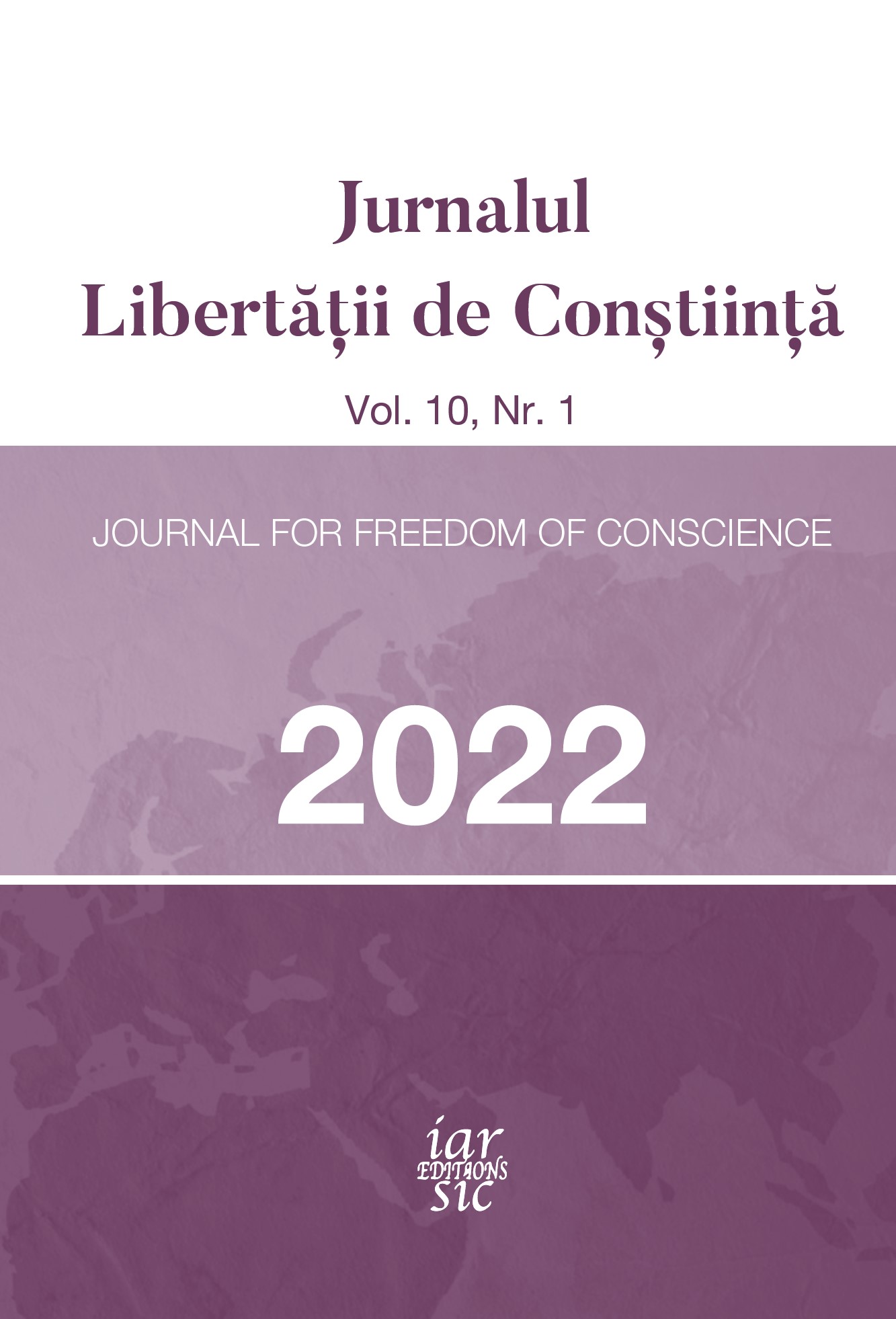
Keywords: criminology; epistemology; paradigm; free will; freedom of will; rationality; good; evil; organogenesis; sociogenesis; cognitive; spirituality; Reformation; Counter-Reformation;
As I pointed out in my previous article* Comprehensive Criminology, elaborated by George C. Basiliade - published by Expert Publishing House, in 2006 and awarded the Romanian Academy Prize Simion Bărnuțiu/2006 -is not only an encyclopedic treatise, unique in the Romanian specialized literature, but also the support of an original conception of the epistemology of crime, almost unique in European and international thought. Unfortunately, this work continues to remain insufficiently known and insignificantly integrated into the academic circuit. Jurist, psychologist, philosopher, George C Basiliade fulfills his training and vision as a criminologist against the backdrop of an active interdisciplinary and an evident Christian spirituality, which ennobles his work. In his epistemological analysis, configured diachronically, the Romanian criminologist projects two main paradigms, which precede the constitution of criminology as a science: the „empirical organicist paradigm” and the „rationalist paradigm of free will”, while detecting the dynamics of specific tensions between them. All the points of view relating to organic nature (somatic, anatomical-physiological, morpho-functional) are subsumed in a theoretical-explanatory and methodological model, which the author has called the „empirical organicist paradigm”. It will be at the origin of attempts to explain the phenomenon of crime, other than through its relationship with the prohibited act and the ‚forces of evil’ which generated ‚original sin’. These attempts, underpinned by the scientism characteristic of the 19th century and supplemented by theories on the evolution of species and the relationship between the organogenesis and sociogenesis of human behaviour, will make some contributions to the construction of criminology as a relatively autonomous scientific discipline. The „rationalist paradigm of free will”, which we propose to analyse mainly in this article, congruently includes both theological and philosophical meanings, that form an explanatory model. From the complexity of the rationalist paradigm of free will, we have proposed to select some of the theological positions, which Basiliade goes through, considering that they are a „sui-generis”value, which gives to the treatise Comprehensive Criminology an original and reducible epistemological potential, revealing the Romanian researcher’s propensity towards Christian spirituality and the understanding of its contribution to the constitution of criminology. The Romanian criminologist’s assertion is symptomatic: „Authentic mysticism is a complementary alternative to human rationality and results from transgressing the limits of current understanding. It does not cancel the reflective capacity of the human being - on the contrary - it reveals, through a dialectic of complementarity, a dimension of rationality, actualized in exceptional cases in the conscience of the believer”.
More...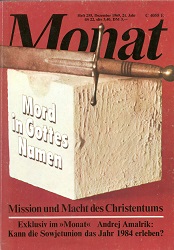

Keywords: electromobility; electricity consumption; traffic measurements; CO₂ emission
The aim of this study is to investigate how the daily electricity demand from road transport related to the implementation of an electric road system on the eight roads with the highest traffic flow connecting the seven largest cities in Turkey varies according to time and location. Intercity highway route O-7, O-5, O-21, D715, D687, E96, and E87 in Western Turkey was used as a case study. The daily electricity demand on the eight roads working on the full electrification of the existing traffic flow can be increased by 3.7% in the case of the reference point. However, if all roads in Turkey are converted to an electric road system and all land vehicles use this system, the corresponding peak power increase will be 100%. The daily electricity demand along the roads is derived from the available measuring points for the daily road traffic volumes. The study also compares the CO₂ reduction potentials and energy demands of the electrified road system with the use of fossil fuels to achieve the same transportation volume. The results show that an electric road system application on eight Turkish roads with considerable traffic flow can reduce 18.8 million tons of CO₂ emissions from the road transport sector. The research can find practical application in assessing the validity of developing a strategy for the development of electromobility on highways in Turkey.
More...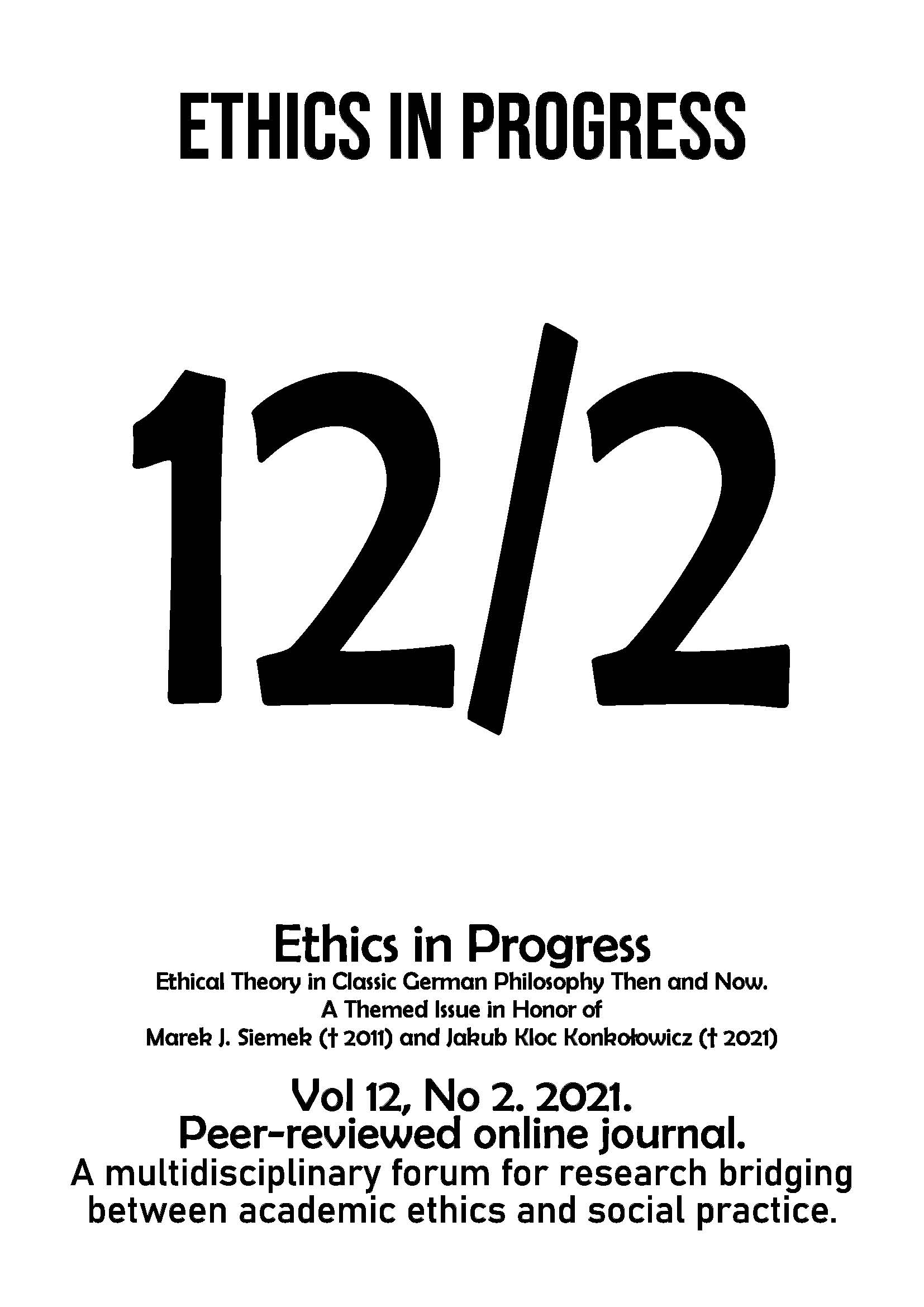
Keywords: Marx’s relation to Fichte; Marx as not philosophy-escapist; Hegel; Engels; Feuerbach; Classical German Philosophy; Lukács
We ignore the history of philosophy at our peril. Engels, who typically conflates Marx and Marxism, points to the relation of Marxism to the tradition while also denying it. In his little book on Feuerbach, Engels depicts Feuerbach as leading Marx away from Hegel, away from classical German philosophy, away from philosophy and towards materialism and science. This view suggests that Marx is at best negatively related to Classical German philosophy, including Hegel. Yet Engels elsewhere suggests that Marx belongs to the classical German philosophical tradition. In the preface to Socialism, Utopian and Scientific, Engels wrote: “We German socialists are proud that we trace our descent not only from Saint Simon, Fourier and Owen, but also from Kant, Fichte and Hegel” (Marx & Engels, Collected Works). In this paper I will focus on Marx’s relation to Fichte. This relation is rarely mentioned in the Marxist debate, but I will argue, it is crucial for the formulation of Marx’s position, and hence for assessing his contribution accurately. One of the results of this study will be to indicate that Marx, in reacting against Hegel, did not, as is often suggested, ‘leave’ philosophy, but in fact made a crucial philosophical contribution.
More...